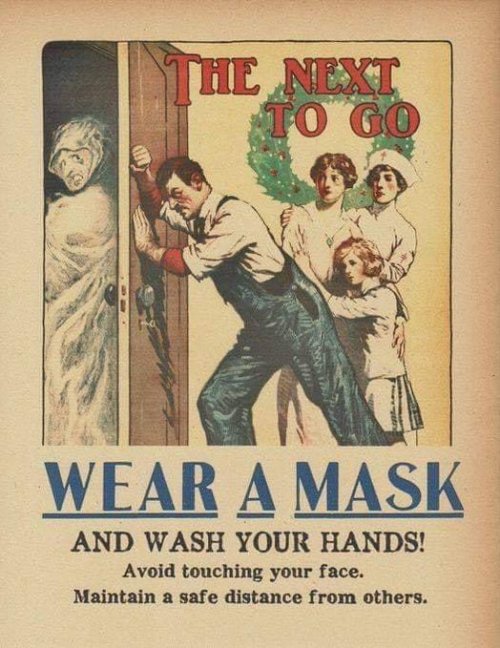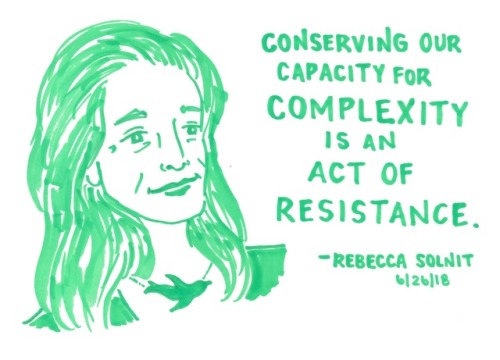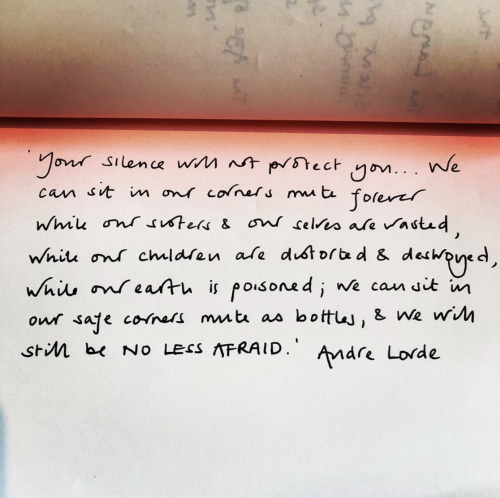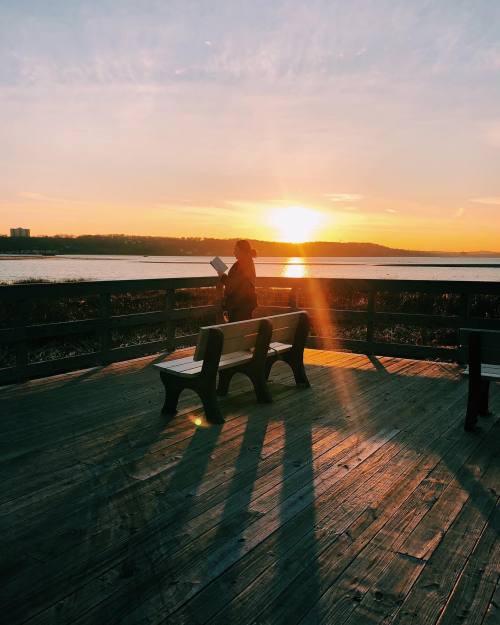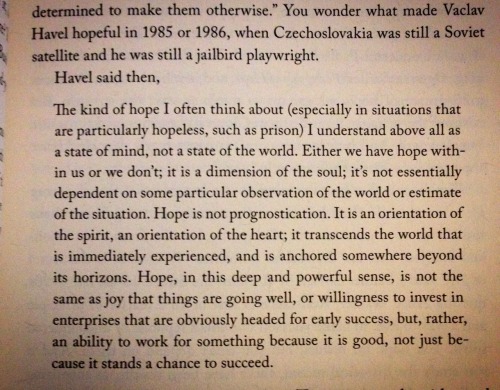#rebecca solnit

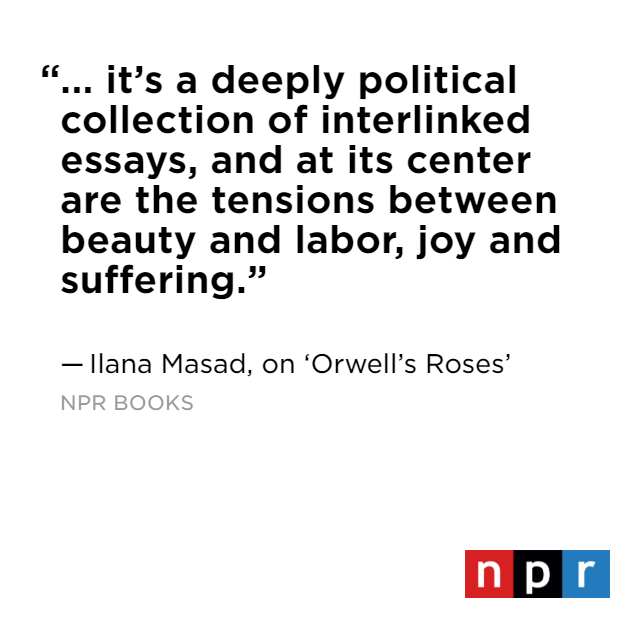
If you only know George Orwell as the dyspeptic, dystopian creator of Animal Farmand1984,you should absolutely pick up Rebecca Solnit’s new Orwell’s Roses,which takes the rose garden Orwell planted at a rented cottage in 1936 as a jumping-off point to explore all kinds of questions. “For example,” writes reviewer Ilana Masad, “What was 1936 like politically, socially, and economically in England? Where was Orwell in his career then? Or: What did his given name signify and what history did it carry? What significance lay in his chosen nom de plume that over time was used by friends and family as well? And even: What does it mean to plant roses?”
Check out the full piece here!
– Petra



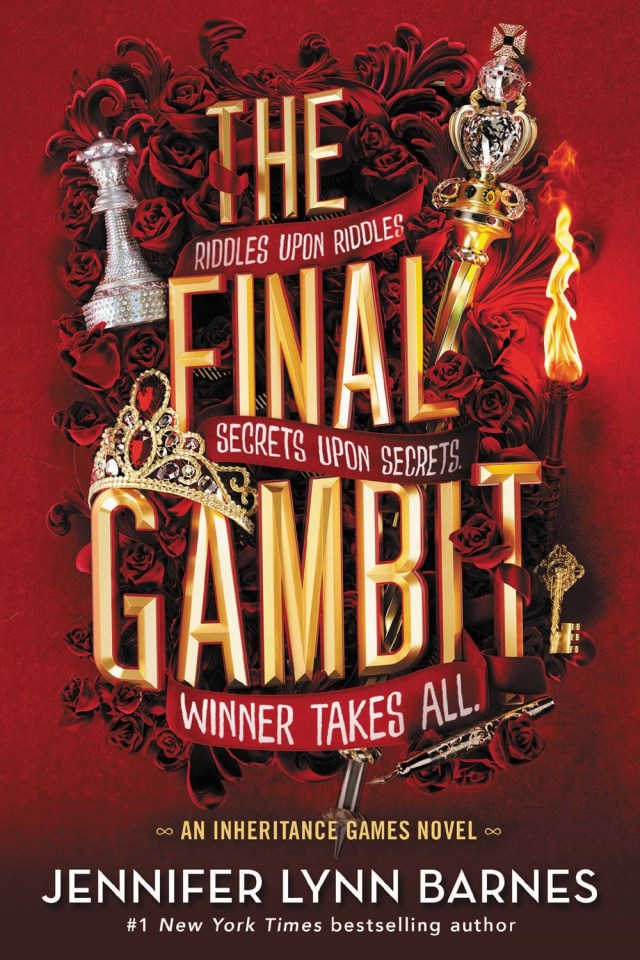
@wayfarers97 tagged me to post 3-5 books I want to read next year, and I had the hardest time figuring out which books to pick! I usually just wing it and grab whatever is in my floor pile or go on hold sprees at the library. But then I remembered some upcoming books that will publish this year that I’m eagerly anticipating.
-Solnit because I’ll always read her stuff, and I lucked into a copy of Orwell’s Roses recently and should probably get around to reading it in January.
-The upcoming Nevermoor book should come out in September!
-Mina, Matt Forsythe’s next picture book (out in spring) looks to be in the style of Pokko, which I absolutely loved.
-My friend recently got me hooked on The Inheritance Games, which we both found out is mystery trilogy (curses! I hate a mystery trilogy! I don’t like the unanswered suspense! This is a repeat of what happened with the Truly Devious trilogy. *cries*) and not a duology. So now, like a dummy, I’m waiting for the third book to come out in August.
Tagging anyone who’s up for sharing 2022 tbrs! (@the-forest-library, if you want to do this one!)
“Maps are ubiquitous in one sense, and completely missing in another. A lot of younger people don’t own maps and atlases and don’t have the knowledge a map gives you. We call things like MapQuest and Google Maps on your phone interactive… but are they? Are they interactive? It’s a system that largely gives you instructions to obey. Certainly, obedience is a form of interaction. (Maybe not my favorite one.) But a paper map you take control of — use it as you will, mark it up — and while you figure out the way from here to there yourself, instead of having a corporation tell you, you might pick up peripheral knowledge: the system of street names, the parallel streets and alternate routes. Pretty soon, you’ve learned the map, or rather, you have — via map — learned your way around a city. The map is now within you. You are yourself a map.”—Rebecca Solnit, author of A Field Guide To Getting Lost and Infinite City: A San Francisco Atlas(viaaustinkleon)
“I was learning that who you are and what you do and make and wear and say can be a contribution to people around you, that many of the most valuable gifts are not direct or material or measurable. That even how you live your life can be a gift to others.”
- Rebecca Solnit, Recollections of My Non-Existence

“In those days, I was trying to disappear and to appear, trying to be safe and to be someone, and those agendas were often at odds with each other.”
- Rebecca Solnit, Recollections of My Non-Existence

- Rebecca Solnit, A Field Guide to Getting Lost
Public Safety Poster: Christmas 1918.
Source: Thanatos Archive
* * * *
Rebecca Solnit
A little over two years ago at the outset of the pandemic I wrote: If you’re pregnant or you’re healing from something or you’re a child or adolescent in a growth spurt, you are working all the time to produce what comes next. What looks like “doing nothing” is productive on all sorts of levels, most of them below the horizon of consciousness.
If you’re in the middle of a pandemic, just absorbing what it means in terms of your own transformed life and the fate of whatever nation you’re in and the world, of practical plans and metaphysical and political implications, is a huge task. I think most of us are absorbed in this task and it should be recognized as hard and necessary work, because that will help us forgive ourselves for not being so productive at our everyday work in the normal world we left behind this month. Because you probably are very productive now, but not in the way that was the norm a few weeks ago, and this is probably the most important work you can do. Still true of living through violent change and turmoil.
Post link
Spiderwebs are images of the non-linear, of the many directions in which something might go, the many sources for it; of the grandmothers as well as the strings of begats. There’s a German painting from the nineteenth century of women processing the flax from which linen is made. They wear wooden shoes, dark dresses, demure white caps, and stand at various distances from a wall, where the hanks of raw material are being wound up as thread. From each of them, a single thread extends across the room, as though they were spiders, as though it came right out of their bellies. Or as though they were tethered to the wall by the fine, slim threads that are invisible in other kinds of light. They are spinning, they are caught in the web. To spin the web and not be caught in it, to create the world, to create your own life, to rule your fate, to name the grandmothers as well as the fathers, to draw nets and not just straight lines, to be a maker as well as a cleaner, to be able to sing and not be silenced, to take down the veil and appear: all these are the banners on the laundry line I hang out.
Rebecca Solnit, Men Explain Things to Me
And they’re out to gut reproductive rights—birth control as well as abortion, as they’ve pretty effectively done in many states over the last dozen years. What’s meant by “reproductive rights,” of course, is the right of women to control their own bodies. Didn’t I mention earlier that violence against women is a control issue?
Rebecca Solnit, Men Explain Things To Me
Nothing that has ever happened should be regarded as lost for history.
Walter Benjamin
Hope is tough. It’s tougher to be uncertain than certain. It’s tougher to take chances than to be safe. And so hope is often seen as weakness, because it’s vulnerable, but it takes strength to enter into that vulnerability of being open to the possibilities.

Who drinks your tears,
who has your wings,
who hears your story?
© Rebecca Solnit
Ukraine, Mariupol, 2022
Excerpted from Audre Lorde’s paper “The Transformation of Silence into Language and Action,” originally delivered at the Lesbian and Literature panel of the Modern Language Association’s December 28, 1977 meeting. First published in Sinister Wisdom 6andThe Cancer Journals.
Post link
I write for every woman who wishes to write, who has spoken truth to power that protects and perpetuates gender-based discrimination, gender-based violence, sexual harassment, sexual misconduct, sexual assault, and rape. I write for every woman who wishes to write, who has been met with sexist and tired statements including and not limited to, “He’s a good guy” and “He’s talented,” as if talent (and often, statistically unsupported overconfidence), “niceness,” and bro culture that both men and women protect and perpetuate, somehow excuses the behavior and/or crime, and discomfort, anxiety, and depression that the woman endured. I write for every woman who wishes to write, who has endured gaslighting,victim blaming, shaming, stigma, and judgment.
“Being told that, categorically, he knows what he’s talking about and she doesn’t, however minor a part of any given conversation, perpetuates the ugliness of this world and holds back its light. After my book Wanderlust came out in 2000, I found myself better able to resist being bullied out of my own perceptions and interpretations. On two occasions around that time, I objected to the behavior of a man, only to be told that the incidents hadn’t happened at all as I said, that I was subjective, delusional, overwrought, dishonest—in a nutshell, female.”
Excerpted from Men Explain Things to Me, by Rebecca Solnit.
“When I sat down and wrote the essay Men Explain Things to Me, here’s what surprised me: though I began with a ridiculous example of being patronized by a man, I ended with rapes and murders. We tend to treat violence and the abuse of power as though they fit into airtight categories: harassment, intimidation, threat, battery, rape, murder. But I realize now that what I was saying is: it’s a slippery slope. That’s why we need to address that slope, rather than compartmentalizing the varieties of misogyny and dealing with each separately. Doing so has meant fragmenting the picture, seeing the parts, not the whole.
A man acts on the belief that you have no right to speak and that you don’t get to define what’s going on. That could just mean cutting you off at the dinner table or the conference. It could also mean telling you to shut up, or threatening you if you open your mouth, or beating you for speaking, or killing you to silence you forever. He could be your husband, your father, your boss or editor, or the stranger at some meeting or on the train, or the guy you’ve never seen who’s mad at someone else but thinks ‘women’ is a small enough category that you can stand in for ‘her.’ He’s there to tell you that you have no rights.
Threats often precede acts, which is why the targets of online rape and death threats take them seriously, even though the sites that allow them and the law enforcement officials that generally ignore them apparently do not. Quite a lot of women are murdered after leaving a boyfriend or husband who believes he owns her and that she has no right to self-determination.”
Rebecca Solnit on why #YesAllWomen matters, and why phrases like domestic violence, mansplaining, rape culture, and sexual entitlement help us address issues honestly and open the way to change.
Note that academic institutions and the justice system have historically protected classism, white supremacy, and patriarchy. Note the published phrases used to describe Brock Turner, the man who sexually assaulted Chanel Miller: “baby-faced Stanford freshman,” “All-American swimmer,” “Stanford swimmer,” and winning swimming times were promulgated by journalists to uphold Turner’s privilege and Stanford’s reputation.
Millions of women of Asian descent are bearing witness to Chanel MillerandRowena Chiu claiming their names and taking control of their narratives. The catharsis that I feel as a woman, of Asian descent, and survivor is liberating and I know that it is resonating with other women of color. It is critically important to note that women, both cis- and transgender, are disproportionately affected by sexual violence, and that while the majority of sexual assaults and rapes in America are reported by white women, women of color especially Black women and Native American women are more likely to be sexually assaulted and raped. It is equally important to note that Asian women report rape and other forms of sexual violence less frequently than women of other races.
Asian women experience and intersect with racism, sexism, and misogyny in ways that are shared with women of other races and separately, unique to us. Everyone must acknowledge the dehumanization of Asian women—including hyper sexualization and fetishization—and acknowledge its unequivocal link to American colonialism, imperialism, and militarization in Asian countries. Asian women and all women of color are often asked, “Why didn’t you report it?” The obvious reasons include trauma; lack of financial resources; immigration status; mistrust of the justice system; and shame, societal- and self-stigma, and risk of alienation from families, friends, and ethnic communities.
The data on underreporting and shame, stigma, and fear associated with victim self-reporting is unequivocally linked to the data that three out of four sexual assaults are not reported to law enforcement. I personally do not believe that incarceration is synonymous with justice; nonetheless, the data is jarring: five out of every 1,000 perpetrators receive prison sentencing. All of this is evidence that survivors of sexual harassment, sexual misconduct, sexual assault, and rape—especially those from marginalized groups—can fail to receive justice from a system that is biased against them from the start. Half of survivors who report their sexual assaults and rapes say that they are re-traumatized by law enforcement, which may blame them for their own assaults and rapes.
So how do we move forward? First, we must support both cis- and transgender women, other marginalized groups, and survivors of all genders. Recognize whether there is a tendency to victim-blame, and listen to survivors of all intersecting identities whether they choose to publicly or privately disclose details of their traumas. Identify responsibilities—as a professional, as a human—and support survivors by working to eradicate systemic issues of harmful masculine idealsandrape culture. Understand that yes, all sexism is linked to rape culture; work to confront, disrupt, and eradicate issues of sexism at its rearing. Support community health centersandPlanned Parenthood centers, where low-income women and minorities will be treated with expert compassionate care.Support public libraries and access to computers, free Internet, and digital literacy tools. Know that these tools are intrinsically linked to audibility and survival.
To my support network: I love you and am grateful for your love and support these past years. You remember when I was confident, uninhibited, and assertive; when I lost that for some time; and my re-emergence, grown, growing, and resilient.
I recognize my privilege and know that many survivors are struggling with alienation from family and friends and may be unsure where to seek support. Please find verified resources below:
BetterBrave is a guide to identifying and addressing sexual harassment.
The Center for Changing Our Campus Culture is an online resource to address dating violence, intimate partner violence, and sexual assault, supported by the Department of Justice’s Office on Violence Against Women.
Local domestic violence shelters resource guide
Equal Rights Advocates is a nonprofit legal organization dedicated to protecting and expanding economic and educational access and opportunities for women.
Me Too is a movement that supports survivors of sexual violence and their allies by connecting survivors to healing resources, and offering community organizing resources, information regarding pursuing a “me too” policy platform, and sexual violence research.
The National Domestic Violence Hotline provides lifesaving tools and immediate support to enable victims to find safety.
The National Women’s Law Center works to protect and advance the progress of women and girls at work and in school, with special attention given to the needs of low-income women and families.
Rise is a multi-sector coalition of sexual assault survivors and allies working to empower all survivors with civil rights and in 2016, drafted and passed the Sexual Assault Survivors’ Bill of Rights unanimously through Congress.
The TIME’S UP Legal Defense Fund supports the brave individuals who have come forward, at great risk to themselves, to seek the justice they deserve and to protect others from similar behavior. It is administered by the National Women’s Law Center.
“People have always been good at imagining the end of the world, which is much easier to picture than the strange sidelong paths of change in a world without end.”—Rebecca Solnit, from “The Millennium Arrives: November 9, 1989″ in Hope in the Dark (Nation Books, 2004)
“Sometimes an old photography, an old friend, an old letter will remind you that you are not who you once were, for the people who dwelt among them, valued this, chose that, wrote thus, no longer exists.”—Rebecca Solnit in A Field Guide to Getting Lost
Post link
Because it is good not because it will succeed. This is a concept of hope I can get. And it’s probably bc it’s Hufflepuff as fuck.
The Hufflepuffs went, to a person, to fight in the Battle of Hogwarts not because they thought victory was possible, but because it was the right thing to do.
Post link
“when you give yourself to places, they give you yourself back” — Rebecca Solnit, from Wanderlust: A History of Walking
“Some books are toolkits you take up to fix things, from the most practical to the most mysterious, from your house to your heart, or to make things, from cakes to ships. Some books are wings. Some are horses that run away with you. Some are parties to which you are invited, full of friends who are there even when you have no friends. In some books you meet one remarkable person; in others a whole group or even a culture. Some books are medicine, bitter but clarifying. Some books are puzzles, mazes, tangles, jungles. Some long books are journeys, and at the end you are not the same person you were at the beginning. Some are handheld lights you can shine on almost anything.”
-Rebecca Solnit,A Velocity of Being: Letters to A Young Reader

